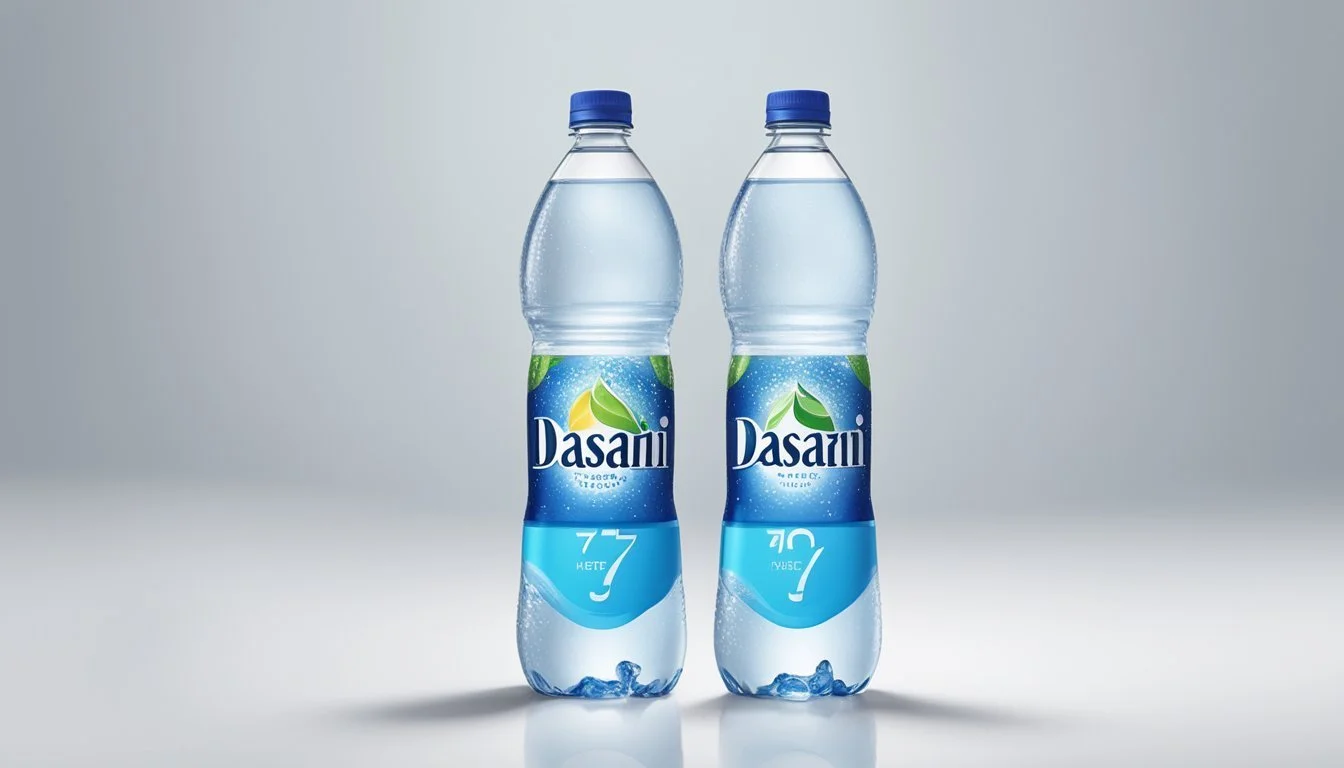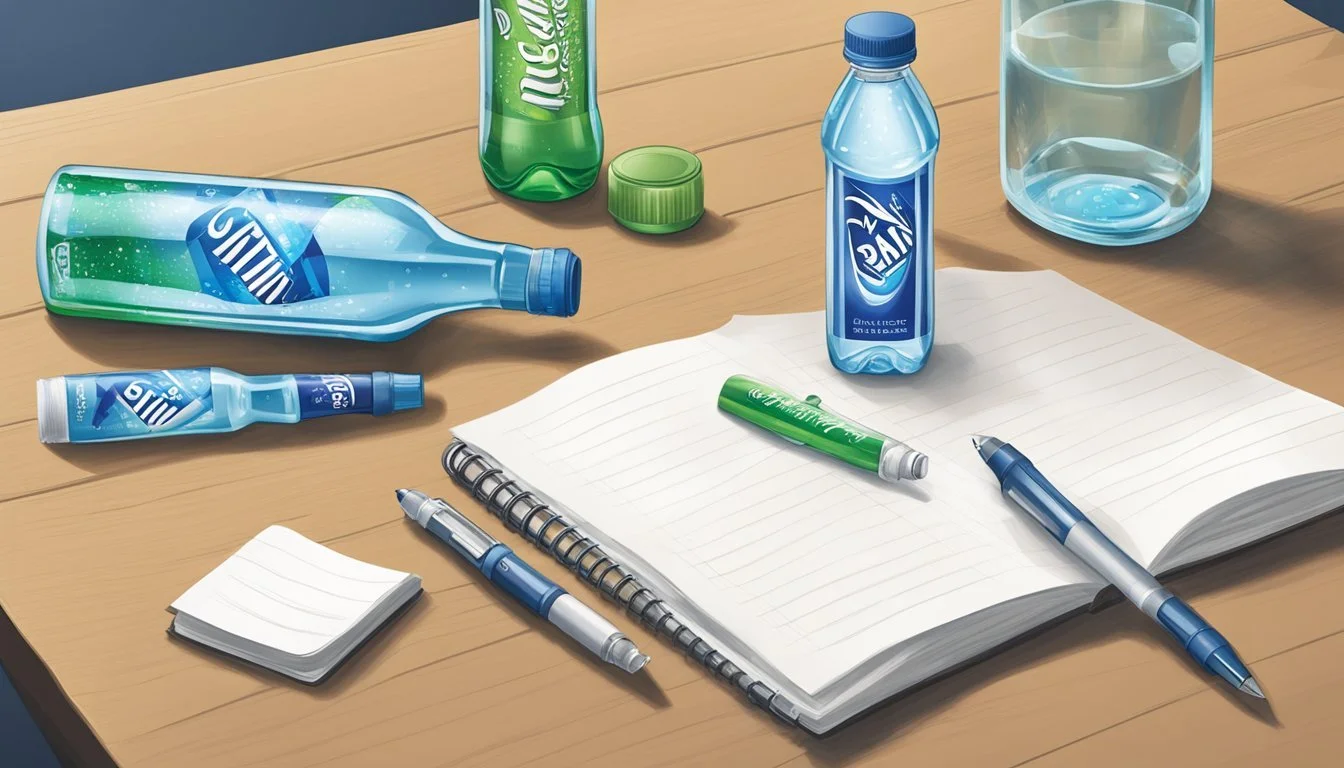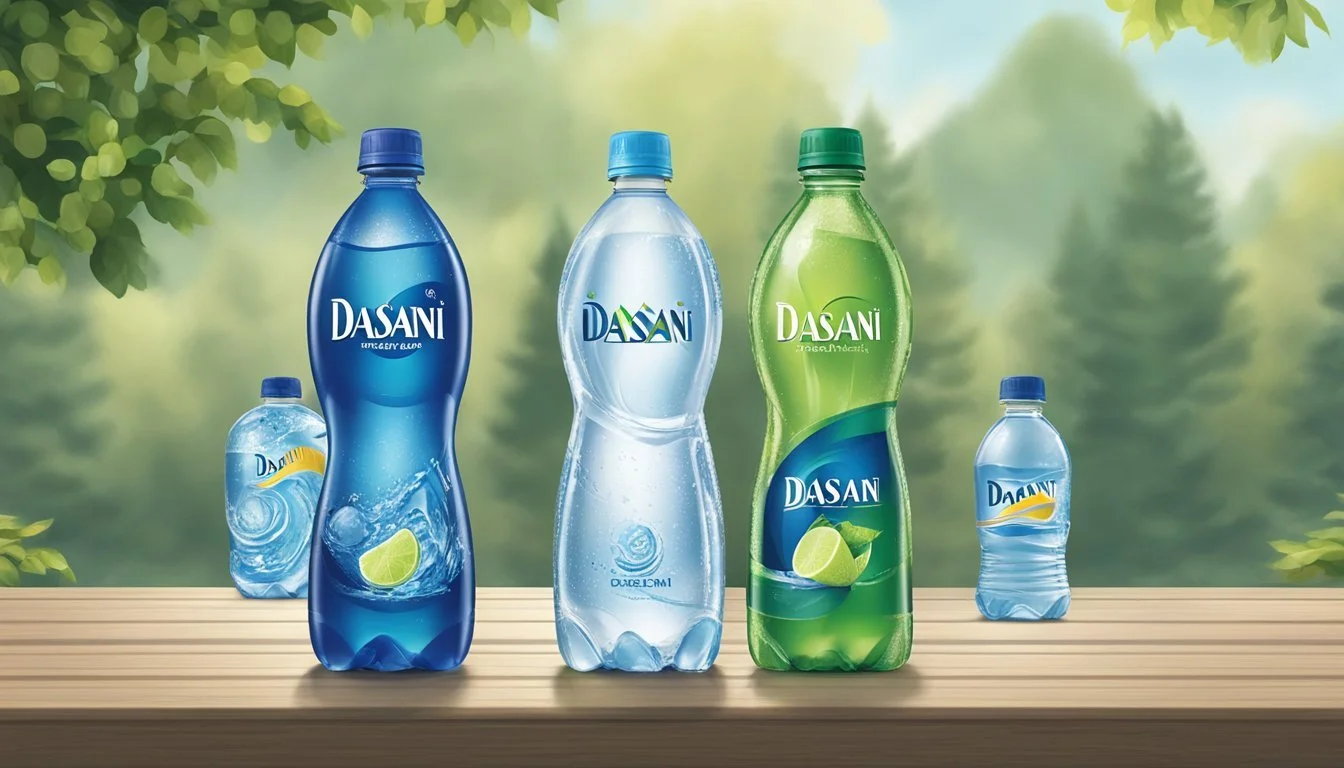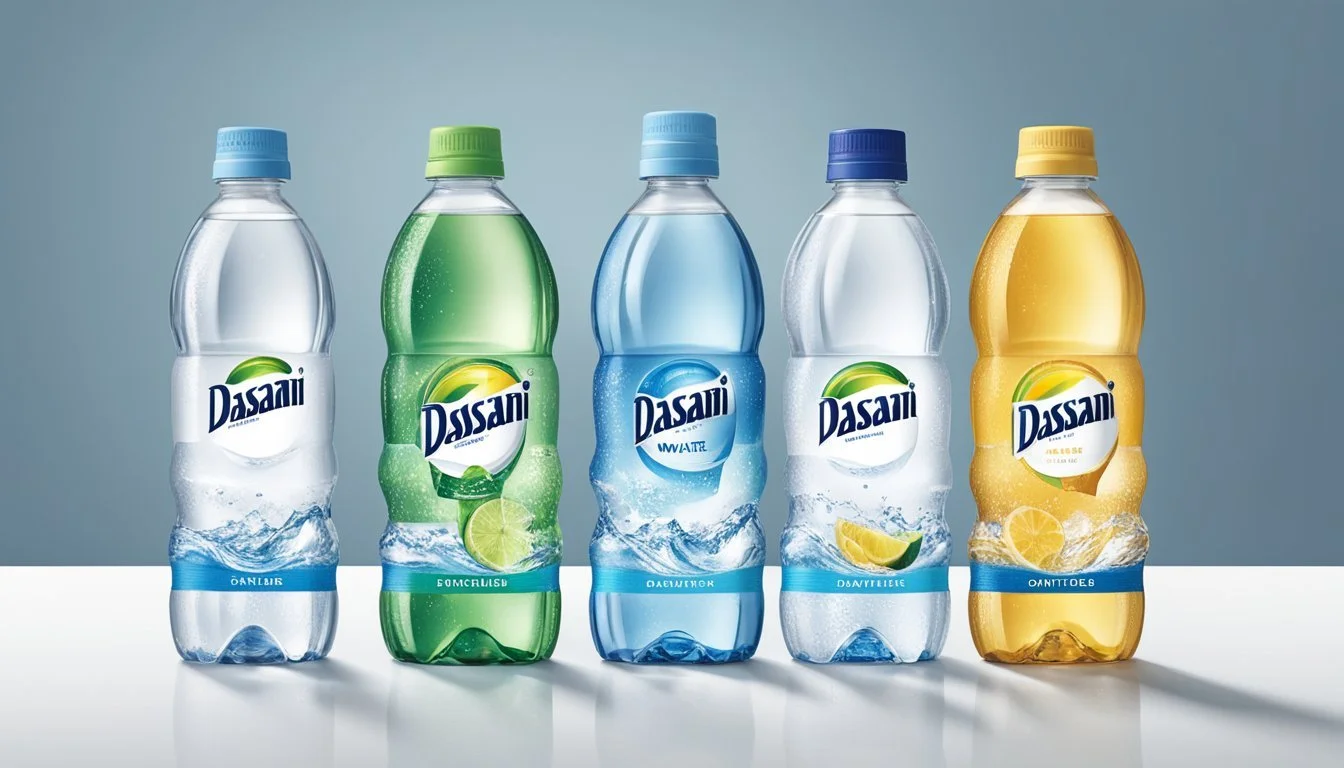7-Select vs. Dasani
Comparing Quality, Taste, and Value
When it comes to bottled water, 7-Select and Dasani are two brands that often come to mind for many consumers. Both have their distinct characteristics and loyal followings, making the comparison between them quite relevant for those seeking the best option for their hydration needs. If you're looking for a crisp, clean taste, Dasani might hold the upper hand with its proprietary blend of minerals added after purification.
On the other hand, 7-Select offers a more straightforward option that appeals to those who prefer minimal processing and additives in their bottled water. While Dasani's enhanced flavor profile can be appealing, 7-Select prides itself on providing a pure and simple drinking experience. For individuals prioritizing sustainability, Dasani's packaging in 100% recyclable bottles could also be an important factor to consider.
Ultimately, the choice between 7-Select and Dasani boils down to personal preferences regarding taste, purity, and environmental impact. Each brand has its strengths and caters to different consumer needs in a competitive market.
The Basics of Bottled Water
Bottled water comes in many forms, each with its own origins and treatments. Understanding its types, sources, and quality is crucial for making informed choices about what to drink.
Understanding Bottled Water
Bottled water can be broadly categorized based on its source and treatment processes. Common categories include purified, spring, mineral, and tap water. Purified water undergoes extensive filtration to remove impurities, often via reverse osmosis or distillation.
Natural spring water is harvested from natural springs and typically retains its mineral content. Mineral water must contain a minimum level of minerals and is often bottled at its source. Tap water, though less common in bottled form, is simply municipal water that is treated and bottled.
Types of Bottled Water
Purified Water: This type undergoes rigorous treatment like deionization, reverse osmosis, or distillation. Brands like 7-Select often use this method to ensure high purity levels.
Spring Water: Sourced from natural springs, this type retains its natural mineral content, giving it a distinct taste profile that many prefer.
Mineral Water: Must contain at least 250 parts per million of total dissolved solids. It is usually bottled at the source and remains rich in essential minerals.
Tap Water: Bottled tap water is less common but is treated municipal water. It offers convenience but lacks the unique qualities of spring or mineral waters.
Water Source and Quality
The source of bottled water significantly impacts its quality and taste. Natural sources, like springs or wells, often provide water rich in minerals. These minerals not only influence the taste but can also offer health benefits.
Purified water, while free of most impurities, might lack the natural minerals found in spring or mineral waters. Ensuring that the water source is protected from contamination is crucial, as it directly affects safety and taste.
Tap water, though treated and safe to drink, may vary greatly in quality based on local water treatment standards. When bottled, it offers a convenient option but often lacks the distinct characteristics of natural sourced waters.
Comparative Analysis
7-Select and Dasani both have unique qualities that are worth examining in detail. Key differences lie in their taste profiles, purification methods, and mineral contents, which can each significantly impact consumer preference.
Taste Profile Comparison
When it comes to taste, Dasani and 7-Select offer distinct experiences. Dasani, a product of the Coca-Cola Company, is known for its slightly crisp flavor. Some consumers note a slight tang, which can be attributed to the presence of added minerals like potassium chloride and magnesium sulfate.
7-Select, from 7-Eleven, aims for a more neutral taste. By undergoing rigorous purification processes, it ensures a clean, refreshing flavor without any noticeable aftertaste. This neutral taste profile is preferable for those who seek water that complements rather than dominates their palate.
Purification and Treatment Methods
Dasani and 7-Select use different purification techniques to ensure their water quality. Dasani employs reverse osmosis and microfiltration. These processes remove impurities and contaminants, delivering a highly purified product. Dasani also adds minerals back into the water for taste enhancement.
7-Select, on the other hand, often utilizes distillation and reverse osmosis. Distillation ensures the water is free from contaminants by vaporizing and then condensing it back into liquid form. This method, along with additional filtration, provides high purity levels. The choice between the two depends largely on personal preference for the purification process and its outcomes.
Mineral Content and pH Levels
Mineral content and pH levels play crucial roles in the characteristics of bottled water. Dasani features additives like sodium, potassium bicarbonate, and magnesium sulfate to enhance flavor. These minerals can affect the water’s taste and nutritional profile.
The pH level of Dasani usually falls between 5.0 and 7.0, leaning slightly acidic. 7-Select, meanwhile, targets a neutral pH level, which often results from its comprehensive water treatment processes. This neutrality can appeal to those preferring a balanced and less distinctive flavor profile.
In terms of health benefits, water with balanced mineral content, such as 7-Select, may offer a more favorable option for consumers looking to avoid added sodium or other minerals. Both brands ensure safe and clean drinking water, but the specific mineral composition can lead to different consumer experiences.
Brand Analysis: 7-Select
7-Select, part of the 7-Eleven convenience store chain, has positioned itself as a practical and accessible option in the bottled water market. By focusing on reliable sourcing and quality treatment methods, 7-Select aims to deliver a consistent and refreshing product.
Brand Overview: 7-Select
7-Select is the private label brand of 7-Eleven, offering a range of products including bottled water. Designed to meet the needs of on-the-go customers, 7-Select provides a convenient hydration option. The brand emphasizes affordability while ensuring the water meets certain quality standards.
7-Select Water Sources
The water used for 7-Select is typically sourced from municipal supplies or protected wells. These sources are chosen to ensure a consistent and safe water supply. The sourcing strategy allows 7-Select to maintain a steady supply while keeping costs accessible for consumers.
7-Select Water Quality and Treatment
Water quality is a primary focus for 7-Select. The brand employs purification methods such as reverse osmosis to remove impurities. These methods ensure the water is free from contaminants, providing a clean and crisp taste. Additionally, 7-Select water undergoes regular testing to comply with safety regulations and quality expectations.
Brand Analysis: Dasani
Dasani, a bottled water brand owned by Coca-Cola, is known for its unique treatment methods and distinctive taste. This section examines the key aspects of Dasani, including its brand overview, sources, and water quality.
Brand Overview: Dasani
Dasani was introduced by Coca-Cola in 1999 as a purified bottled water brand. Unlike natural spring water, Dasani relies on municipal water sources, which are then purified through a rigorous process.
The brand has faced various criticisms, particularly regarding its source of water. Despite this, Dasani remains popular due to its consistent quality and the extensive reach of Coca-Cola's distribution network.
Marketing efforts often highlight the brand’s emphasis on purity and cleanliness.
Dasani Water Sources
Dasani uses municipal water systems as its primary source. This local tap water undergoes an extensive purification process to ensure safety and quality.
Because Dasani sources water from different regions, the specific origin can vary by location.
Municipal sources are often treated with local regulations in mind before reaching Dasani's facilities. This ensures that the initial water quality meets basic safety standards before further treatment.
Dasani Water Quality and Treatment
Dasani employs a multi-step purification process involving reverse osmosis, which effectively removes impurities and contaminants.
Added minerals for taste, like magnesium sulfate and potassium chloride, give Dasani its signature mineral flavor. This process helps in meeting the stringent quality criteria set by Coca-Cola.
Chlorine is also removed to improve taste, making the water more palatable. Dasani's water quality is continuously monitored to ensure consistency and safety, adhering to both federal and international guidelines.
Packaging and Environmental Impact
Examining the packaging and environmental impact of 7-Select and Dasani reveals important differences in materials and sustainability practices. Additionally, each brand's approach offers insights into broader environmental concerns associated with bottled water.
Bottle Materials and Sustainability
7-Select plastic bottles are designed for convenience but have varying environmental impacts. They use polyethylene terephthalate (PET), a common plastic that is recyclable but often ends up in landfills if not properly disposed of.
Dasani has made strides in sustainability by incorporating plant-based plastics and promoting recyclable aluminum cans. Their commitment includes using 50% recycled materials in their plastic bottles, which reduces the overall demand for new plastic production.
Dasani’s innovative packaging reflects The Coca-Cola Company’s effort to align with eco-friendly goals such as the "World Without Waste" vision, aiming to collect and recycle a bottle or can for each one sold by 2030.
Environmental Concerns of Bottled Water
Bottled water production and disposal raise several environmental concerns. The manufacturing processes for both 7-Select and Dasani generate carbon emissions and consume significant energy.
Single-use plastic bottles, such as those mostly used by 7-Select, contribute to plastic pollution in oceans and other ecosystems. Despite the recyclability of PET plastic, many bottles still fail to be recycled, leading to increased landfill waste.
The Environmental Protection Agency (EPA) highlights that only about 30% of plastic bottles in the U.S. are recycled. Dasani’s push for recyclability and sustainable packaging aims to mitigate these concerns, but effective consumer participation is crucial for meaningful impact.
Glass bottles, while not commonly used by either brand, offer a more sustainable alternative due to their reusability and lower environmental footprint in terms of degradation.
Market Presence and Consumer Choice
7-Select and Dasani cater to different segments of the bottled water market with distinct characteristics influencing their availability and consumer preferences. This section explores the nuances between these brands in terms of accessibility and emerging consumer trends.
Availability and Accessibility
7-Select, the convenience store brand from 7-Eleven, primarily targets customers seeking quick, on-the-go hydration. With a vast network of 7-Eleven stores globally, 7-Select is highly accessible to urban and suburban consumers alike. It benefits from the brand’s widespread retail footprint, ensuring consistent availability for customers frequenting these stores.
Dasani, produced by The Coca-Cola Company, has an expansive distribution network, making it widely available in various retail channels including supermarkets, vending machines, and convenience stores. Its presence extends internationally, benefiting from Coca-Cola's well-established supply chain. This extensive distribution network helps Dasani maintain a strong market presence and accessibility for a diverse consumer base.
Consumer Preferences and Trends
7-Select strives to appeal to cost-conscious consumers with its affordable pricing. These consumers often prioritize convenience and practicality, making 7-Select a practical choice for daily hydration needs. The brand’s association with 7-Eleven also influences its appeal, particularly among consumers favoring private label products for their value.
Dasani, on the other hand, positions itself as a reliable and familiar brand, often chosen by consumers who trust well-known national brands. It emphasizes consistency in quality and fluid taste, attracting a broad demographic. Market trends show a growing consumer interest in sustainable packaging, and Coca-Cola has responded by incorporating eco-friendly practices into Dasani’s production, thereby enhancing its appeal to environmentally conscious consumers.
Both brands leverage their unique attributes to capture specific segments of the bottled water market, reflecting differing consumer choices driven by accessibility, pricing, and brand loyalty.
Regulation and Safety Standards
Regulation and safety standards for bottled water, particularly brands like 7-Select and Dasani, ensure that the water is safe for consumption. These standards cover various aspects including filtration, contamination levels, and regular quality reporting.
Bottled Water Regulations
Bottled water is regulated both at the federal and state level in many countries. In the United States, the Food and Drug Administration (FDA) sets strict guidelines for bottled water, which must be as stringent as those set by the Environmental Protection Agency (EPA) for tap water.
These regulations cover the collection, processing, and labeling of bottled water. Companies must follow good manufacturing practices (GMP) and ensure their facilities are regularly inspected. Internationally, organizations such as the International Bottled Water Association (IBWA) often provide additional standards and certifications that companies can attain for higher credibility.
Quality Reports and Certifications
Quality reports are essential for transparency and public trust in bottled water brands. Both 7-Select and Dasani provide accessible quality reports that detail their purification processes, contaminant levels, and testing results. These reports are often published annually and may include specific data on pH levels, mineral content, and any contaminants found.
Certifications from reputable bodies such as the IBWA or NSF International can further assure consumers of the quality. These organizations conduct regular audits to check compliance with safety standards, ensuring that the water remains safe for drinking. Bottled water brands must maintain these certifications through continuous monitoring and adherence to regulatory requirements.
Conclusion
7-Select and Dasani provide safe drinking water options that meet industry standards.
When comparing value, 7-Select often emerges as a more cost-effective choice for budget-conscious consumers.
Taste preferences are subjective. Some find Dasani's added electrolytes contribute to a distinct mineral flavor, while others may prefer the plain taste of 7-Select.
Purification processes also differ. Dasani uses a combination of reverse osmosis and mineral addition, whereas 7-Select's processes may vary by location.
Deciding which is best depends on individual priorities like price, taste, and perceived quality.





